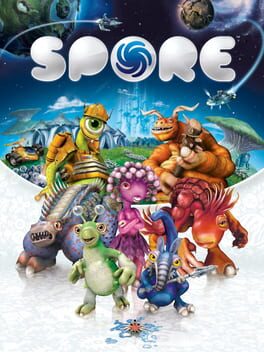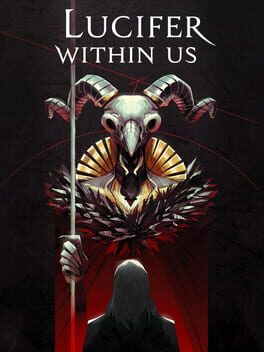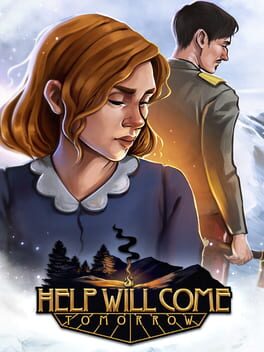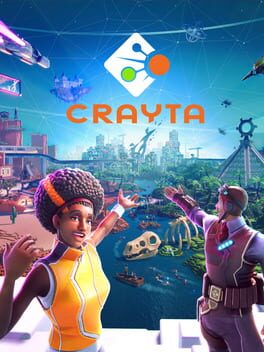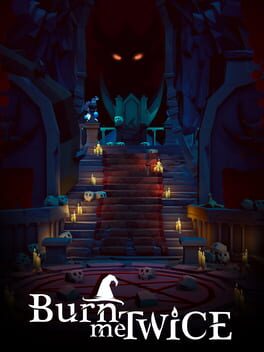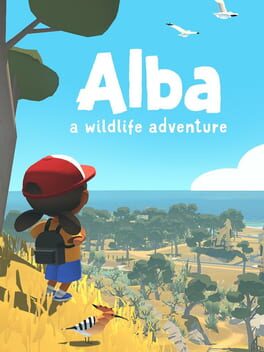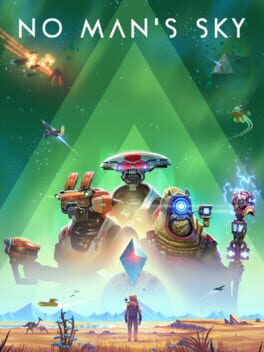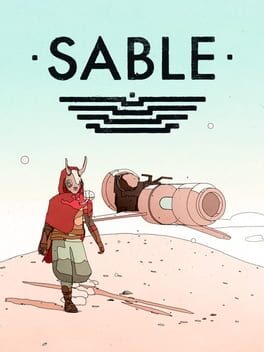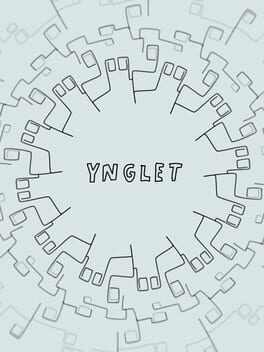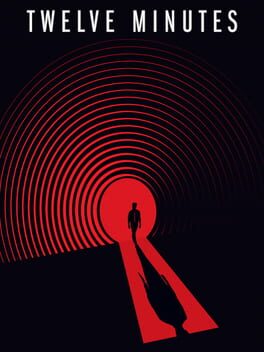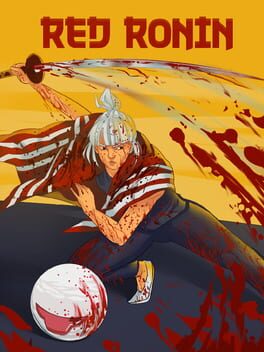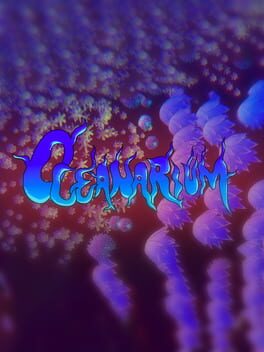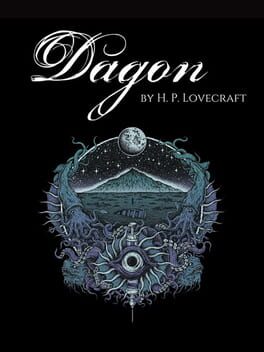AlexV
104 Reviews liked by AlexV
Spore
2008
This game gets too much hate, the creature creator alone gave me hours upon hours of fun. You could just go into that thing with no idea what you wanted to make and fiddle around with shapes, and eventually you'd have a totally unique creature that you could play around with and share and it would pop up in other people's games, it was rad! I also think the game works well as an introduction to learning about evolution for kids, which I like! More edutainment games that function primarily as games rather than dull lessons are good! As far as the gameplay of the different phases, they play like more simplified versions of other games, but I still had a lot of fun especially with the creature and tribal phases because I always wanted to see how all the creatures I created would do stuff! Only abandoned because the space stage takes way too long and bored me, but I did look up the ending cutscene and thought it was funny.
Lucifer Within Us
2020
Impeccable vibes, with the blending of technological and not-quite-Christian imagery. The testimony and contradiction system is an incredibly neat set of detective mechanics, but it exists in a story that wraps up just a smidge too soon, and doesn't quite feel like it matches up with the story it opens with.
Lucifer Within Us
2020
I've attempted to play this game too many time by now and it feels like I'm never having any real fun. I think this one is just too much of an uphill battle for me, where everyone's constantly sick and starving and you have to trial & error your way to what to build first and so on. I'm just bored with it by now.
Crayta
2020
I'm really not sure how this works. You start off with some basic character creation and then you enter a public lobby. Walking through the lobby, you can find existing games that you can play. I tried a platformer that seemed very reminiscent of Fall Guys, but it's single-player and foggy. But you can also explore the lobby and I found...a fun house? Presumably all of this can be made with the game creator, which I tried for 10 minutes. I've never played Minecraft, but it strikes me as a streamlined way of doing Minecraft.
Burn Me Twice
2020
It might be that I'm a bit biased: Alba takes place not only in Spain, but Catalonia, where I live. So it was easy for the game to win me over, especially since I didn't know that going in.
Less easy to achieve is a well-told story, which Alba does, coupled with simple, yet effective mechanics. Perhaps more impressively, the game recreates a small island and town with such charm and personality that it feels much more real than bigger, more photorealistic worlds from other games.
Alba is proof that less is more, especially in today's gaming landscape. Nevermind the "games for change" reputation it gets, it's a damn good game, period. It accomplishes everything it sets out to do, and then some.
Less easy to achieve is a well-told story, which Alba does, coupled with simple, yet effective mechanics. Perhaps more impressively, the game recreates a small island and town with such charm and personality that it feels much more real than bigger, more photorealistic worlds from other games.
Alba is proof that less is more, especially in today's gaming landscape. Nevermind the "games for change" reputation it gets, it's a damn good game, period. It accomplishes everything it sets out to do, and then some.
No Man's Sky
2016
This game promised adventure when it was first announced, adventure with a pulp-ish sensibility. During the first few hours, you get a bit of that feeling. You can notice that from a tech point of view something isn't right but that isn't a big issue actually, you get biome variety, most planets are wretched, lack life forms, and are very raw. But that's what's made it interesting back then in the first build of the game. Even with this, the game didn't know how to manage that exploring will you felt at the beginning.
As time went through the game received a bunch of updates that turned the game into something more accommodating, in which every planet is "special", has lots of life forms, varied and rich flora, and weird fauna. The "eureka" moment felt when finding a lively spot on a planet, or even an entire planet full of life was stripped away.
Also, the game focused on a philosophy taken from Minecraft, in which everything has its use. But it did it in an unimaginative way, with an overdesigned system that led to a pseudoscientific approach to investigation that made you care less for what was around you, and industrial crafting that didn't let much to the imagination.
As time went through the game received a bunch of updates that turned the game into something more accommodating, in which every planet is "special", has lots of life forms, varied and rich flora, and weird fauna. The "eureka" moment felt when finding a lively spot on a planet, or even an entire planet full of life was stripped away.
Also, the game focused on a philosophy taken from Minecraft, in which everything has its use. But it did it in an unimaginative way, with an overdesigned system that led to a pseudoscientific approach to investigation that made you care less for what was around you, and industrial crafting that didn't let much to the imagination.
Sable
2021
I'm struggling to put my thoughts into words lately, I'm even struggling to get something I can call my own from them. So I'll try to use this game as some kind of catalyst to those thoughts.
I'll begin by pointing out how majestically this game portrays the pass of daytime, at its pinnacle, everything is full of colour, vibrant as the sunlight is sending every bit of energy to that purpose. And as time goes by the palette turns cold progressively to the point you don't notice until your surroundings are painted in shades of grey.
I have to admit that when I played the demo, which consisted of the first area, your hometown, back in August the game felt shallow. You are about to get on a coming of age ritual, but you are given a phew preparation tasks before your department. Those tasks felt pointless as they had no complexity, they felt as the name implies, like tasks. But having played that part and contextualized with the whole experience and the promise of adventure realized, I came to the conclusion that it served another purpose, it was but an excuse to make you go on, an outside excuse to make our protagonist's inner world grow. At a greater scale, it feels the same with the stranded ships or the temples you visit, they have that feeling of grandiosity that contrasts the fact that inside there is a puzzle to be solved by you, but in this case, it focuses on the insight you get from it, what it tells you on an inner level.
I'll begin by pointing out how majestically this game portrays the pass of daytime, at its pinnacle, everything is full of colour, vibrant as the sunlight is sending every bit of energy to that purpose. And as time goes by the palette turns cold progressively to the point you don't notice until your surroundings are painted in shades of grey.
I have to admit that when I played the demo, which consisted of the first area, your hometown, back in August the game felt shallow. You are about to get on a coming of age ritual, but you are given a phew preparation tasks before your department. Those tasks felt pointless as they had no complexity, they felt as the name implies, like tasks. But having played that part and contextualized with the whole experience and the promise of adventure realized, I came to the conclusion that it served another purpose, it was but an excuse to make you go on, an outside excuse to make our protagonist's inner world grow. At a greater scale, it feels the same with the stranded ships or the temples you visit, they have that feeling of grandiosity that contrasts the fact that inside there is a puzzle to be solved by you, but in this case, it focuses on the insight you get from it, what it tells you on an inner level.
Ynglet
2021
Great use of platformer design applied to a floaty movement set and free form environment, creating a different but just as satisfying type of challenge that is more focused on precision than dexterity.
It also might be the most gorgeous game I've played this year. The levels and world map are apparently inspired by Copenhagen, but it looks as if the city had been translated into a microscopic space, existing in this surreal, colorful and astir state, flowing in an endless white background.
It also might be the most gorgeous game I've played this year. The levels and world map are apparently inspired by Copenhagen, but it looks as if the city had been translated into a microscopic space, existing in this surreal, colorful and astir state, flowing in an endless white background.
Twelve Minutes
2021
Despite Luis Antonio's outspoken desire to push the medium forward, he wasn't able to conceive of a game that would give form to deeper meaning, instead making a story dominated by it's game mechanics — which resulted in uninspired puzzle box storytelling and shock value —, while the cinematic framing actively crippled the satisfaction of play by adding too much poorly conceived friction in the player's interactions with the game.
(also, there's a bit where the protagonist looks at a window while it's raining and says "heavy rain" and you can't convince me the director is not your average david cage enjoyer)
(also, there's a bit where the protagonist looks at a window while it's raining and says "heavy rain" and you can't convince me the director is not your average david cage enjoyer)
Red Ronin
2021
Oceanarium
2020
A totally mesmerizing and invigorating sensory poem. One of the few indie artygames seemingly made in simple pursuit of beauty I've played recently that actually, y'know, bothers to deliver a nourishing and enveloping vision of beauty! There are some definite style comparisons to be made here, all of which I'm really into (Ori Toor, Chad VanGaalen, David O'Reilly), but Paloma Dawkins' throbbing illustrative style has a rough-hewn and elliptical quality to it that feels entirely her own. The way these images are made manifest and adorned throughout the gamespace is also totally unique: Oceanarium combines the microplanet-hopping perspective from Mario Galaxy with that primitive 90's 3D design workaround in which environmental objects (trees, etc) were simple upright 2d textures that rotated to face the player camera from any angle. Probably doing a horrid job explaining this effect but just play the darn game and if u get it u get it! Oceanarium utilizes this trick to such stunning ends, embroidering hundreds of wafting cloned floral illustrations all rotating in unison throughout its fishbowl camera world, creating this bizarre and schismatic combo of perspective elements that turns this transcendental benthic zone into a quivering symphony. I havent felt as energized by simply navigating around in a game environment in a long time, and despite not being a very mechanically deep playspace (who care) this is such a wondrous proof of concept and piece of visual expression. Like in O'reilly's work, some of the wry 1337speak transcendentalisms of the dialogue aren't really my thing but I actually feel like their obtuse fluffiness works well here, like little phonic bubbles fizzing along and softly contributing to the overall hypnotic effect woven together by the stronger imagery and sound design. The SerpentWithFeet-ass music in the climax/credits sequence is SO GOOD
I also LOVE how, despite being totally arresting and gorge, Oceanarium is clearly made by a small group of people with indivualized but accessible technical/drafting skills, and with such clever technique and economy of design. I love a masterful 800ft ornate golden cathedral made by hundreds just as much as anybody, but semi-janky personal expressions of beauty are always going to resonate more with me!! So inspired!!!! going to doodle all weekend bye
I also LOVE how, despite being totally arresting and gorge, Oceanarium is clearly made by a small group of people with indivualized but accessible technical/drafting skills, and with such clever technique and economy of design. I love a masterful 800ft ornate golden cathedral made by hundreds just as much as anybody, but semi-janky personal expressions of beauty are always going to resonate more with me!! So inspired!!!! going to doodle all weekend bye
